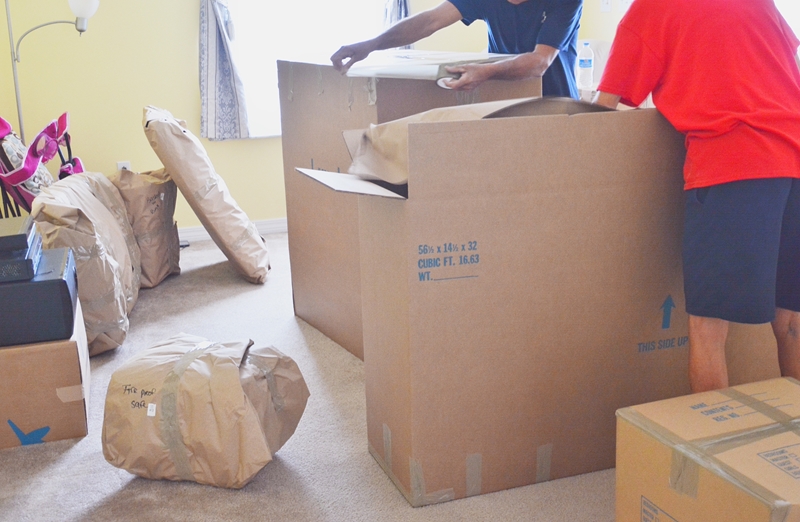Will your child soon be leaving for university? Leaving you with an empty house? You're probably excited for the new adventure they are embarking on - but if you're being honest with yourself, you're likely also dreading the day they leave.
Don't worry - this feeling is normal. What you have is empty nest syndrome, a condition shared by millions of parents around the world. Luckily, there are ways you can mitigate its effects and learn to embrace your child's independence.
What is empty nest syndrome?
Parents create nests for their children - comfortable, safe havens that provide a nurturing environment protected from the rest of the world. But time goes by, and eventually their kids have to learn to fly on their own. They leave home, and the parents feel a sense of loss and sadness. They miss having their children around, but not only that, they also struggle with understanding what their role in life now is.
 It's easy to be overcome with feelings of sadness as you come to grips with your now-empty nest.
It's easy to be overcome with feelings of sadness as you come to grips with your now-empty nest.
That's empty nest syndrome in a nutshell, and it's a common feeling for parents everywhere. While you may be excited for your child's life taking shape, and know logically that they have to break away to accomplish their own dreams, it's easy to be overcome with feelings of sadness as you come to grips with your now-empty nest.
Empty nest syndrome has several symptoms, including:
- Intense feelings of missing your child expressed through sadness and grief.
- Anxiety or depression regarding what your purpose in life is now that your child has moved away.
- Fear or worry about your child being on their own.
How to cope with empty nest syndrome and move on to the next phase of your life
Empty nest syndrome is no fun, but once you get over the initial shock of separation, you can learn to manage your emotions and lessen feelings of sadness.
Here are several ways you can cope:
Deepen relationships with those around you
Once children leave the home, you have an opportunity to strengthen your relationships with those around you. Your spouse is an important resource in dealing with empty nest syndrome - you can help each other through the process and support each other. You now also have the time to cultivate your relationship and focus on one another. Seek out friends, neighbours, siblings and other close connections who can help provide emotional support and social connection now that your children have moved out.
Strengthen your identity
In addition to the sadness that comes from missing their children, empty nesters often also struggle with coming to terms with who they are and what their purpose is now that they do not have to be so involved with raising their children. They self-identified as parents for so long, that they may have forgotten their previous interests and passions as well as their former sense of self before they had kids.
As Psychology Today noted, empty nesters should not simply accept the loss of their identity - instead, they should cultivate a new identity that also feels rewarding and meaningful. To develop this new sense of self-perception, the magazine suggested making a list of the roles that you have in life that also come with the investment of your time. These roles could be:
- Friend/Neighbor.
- Sister/Brother.
- Business Owner/Employee.
Follow your passions
One important part of re-establishing your identity beyond "parent" is following your passions. Think of it this way - you now have the time to devote to reconnecting to interests and pastimes. Set up a hobby room in your home, take a trip with your spouse or sign up for a class - the possibilities are endless!
Make sure your child is taken care of health-wise
Empty nesters can worry about their children's safety and well-being, especially if they're going to university out of province. You can help protect your child from afar - and give yourself better peace of mind - by making sure they're covered under a comprehensive health insurance plan. While you may already have a family plan in place, it is important to know that your provincial health care plan offers limited coverage for emergency medical care outside your province of residence. GMS offers our StudentPlan to help fill those gaps, so you can feel secure knowing that your child has the proper coverage if a medical issue arises.
"You've entered a new phase of the relationship you have with your child."
Embrace the next phase of your relationship with your children
Even though children grow up and move out, they still need a parent to help guide them and support them through all the new challenges of adulthood they'll face. You've also entered a new phase of the relationship you have with your child.
"Your baby might be gone but in her place is an adult with whom you can develop an equally strong but more mature and possibly deeper connection," noted Jennifer Crump in an article for Reader's Digest Canada.
Gillian Leithman, president of retirement planning firm Directions Third Age Consultants, suggested in an interview with Crump that parents find new ways to build their relationships with their grown-up kids, such as video-chatting once a week or going on a weekend trip together.
Becoming an empty nester can be a challenging transition. However, you can take comfort in the fact you are not alone in your feelings, and that there are tangible ways you can ease the pain and feel fulfilled in this new stage of your life.